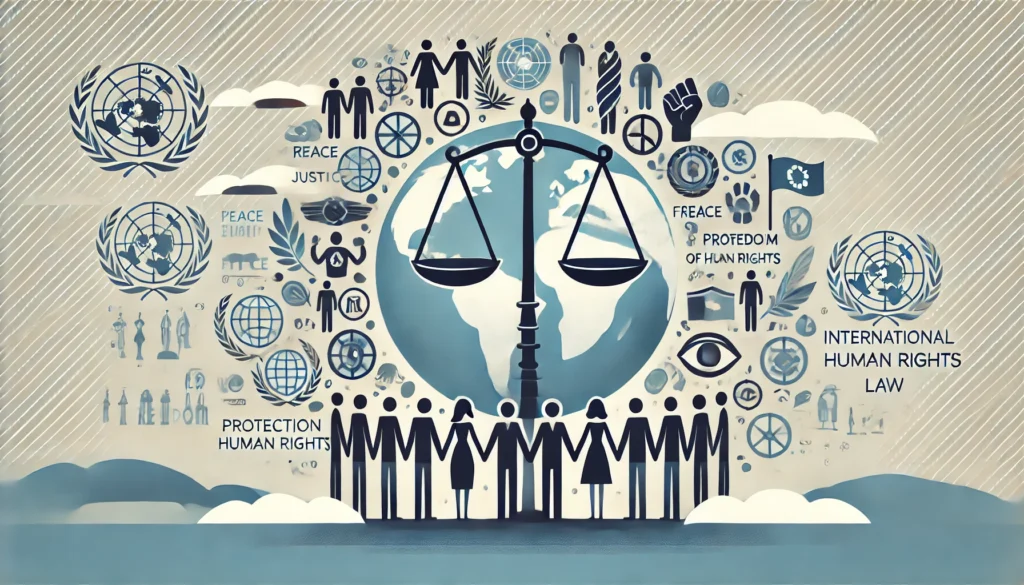Published On: 31st July, 2024

ABSTRACT
The effectiveness, adaptability, and secrecy of arbitration as a private conflict settlement process have led to its rapid growth in local as well as global settings. But when it comes to public policy, which is a concept that protects a state’s basic ethical and legal interests, things get complicated and often heated. Exploring how public policy issues affect the implementation and legitimacy of arbitration rulings in various countries, this essay explores the complex connection between arbitration and public policy. We examine both the dual purpose of public policy as a deterrent towards arbitral rulings that violate core community principles and as a possible instrument for overreaching courts via a thorough examination of historical events, legal structures, and landmark cases. We examine the exemption for public policy under the New York Convention regarding the Recognition, Enforcement, and Administration of Foreign Arbitral Awards and offer an examination of how it is used in different legal systems, such as the US, UK, France, China, and India. The consequences of public policy in arbitration for various sectors, including banking, development, trademarks, and sports, are also covered in this article. This paper aims to add to the current discussion on striking a balance between the protective role of public policy and the independence of arbitration by outlining recent revisions and suggesting future paths.
INTRODUCTION
Arbitration is a process wherein a disagreement is agreed upon by the parties and then presented before one or more arbitrators that render a legally enforceable ruling. By selecting arbitration, the parties forego going to court and instead choose a private dispute settlement process.
One important dispute-resolution tool is arbitration, which provides a confidential, effective, and adaptable way to settle disputes without going through the formal court system. Because of its secrecy and procedural benefits, it is highly preferred in both local and foreign situations. Nonetheless, complicated questions about the enforceability and legitimacy of arbitral rulings are raised by the relationship between arbitration and public policy—a sometimes unclear but important legal topic. Within a jurisdiction, public policy protects core moral and legal principles; nonetheless, its implementation in arbitration might give rise to serious legal difficulties.[1]
Public policy is a legal determination that takes the demands and conventions of society into account. When it comes to arbitration, public policy might be utilised to contest or reject an arbitral ruling if it goes against core values. These values could involve justice, morality, and laws that serve the public interest. Procedural rights like proper procedure, an opportunity to be heard, and arbitrators’ independence can also be contested through public policy.
Nonetheless, courts have broad discretion in interpreting the idea of public policy. It is crucial to strike a balance between public policy and other objectives, such as minimum judicial interference and legal supervision, in order to prevent inconsistent arbitration decisions.
Evolution of Public Policy in Arbitration
Earlier international agreements intended to standardise arbitration procedures are where the idea of public policy in arbitration originated. Amongst the earliest agreements to include public policy as a justification for rejecting the execution of arbitral verdicts were the Geneva Protocol on Arbitration Clauses (1923)[2] and the Geneva Convention on the Execution of Foreign Arbitral Verdicts (1927). Unfortunately, the interpretation of public policy was not well-guided according to these early frameworks, which resulted in uneven implementations throughout jurisdictions.
A major turning point in the development of public policy in arbitration was the 1958 implementation of the New York Convention. The Convention’s Article V(2)(b) permits an award to be refused enforcement if it conflicts with the implementing state’s public policy. This clause has been essential in striking a balance between the tribunal’s authority and the national jurisdiction’s need to preserve core legal norms.
Although the public policy exemption has been construed differently in different jurisdictions, a limited interpretation has formed the overall trend:
United States: American courts have continuously taken a limited perspective on public policy, highlighting the fact that implementation ought to only be rejected if it would go against the fundamental moral and just principles of the forum. Cases such as Parsons & Whittemore Overseas Co. v. Société Générale de l’Industrie du Papier served as examples of this strategy.[3]
United Kingdom: In a similar vein, the courts in England have adopted a restrained approach, usually accepting arbitral rulings unless they contravene essential justice principles. Cases such as Westacre Investments Inc. v. Jugoimport-SDPR Holding Co. Ltd. demonstrate this.[4]
France: French judges make a distinction between national and global public policy, frequently emphasising the latter in matters involving arbitration. They have established a stringent
standard for bringing up public policy, demanding that a transgression be “explicit, productive, and specific”.
China: Although the exception for public policy has historically been applied broadly, Chinese courts are shifting closer to global norms in an effort to improve their credibility as arbitration-friendly .
India: From an expansive view to a deeper understanding, India’s attitude has changed. Following its ruling in Renusagar Power Co. Ltd. v. General Electric Co., the Supreme Court made it clear that only certain policy infractions would warrant denial of enforcement.[5]
The New York Convention and Its Role in Arbitration and Public Policy
A pillar of international dispute resolution is the United Nations Convention on the Recognition, Enforcement, and Recognition of Foreign Arbitral Awards, or the New York Convention. The Convention, which was enacted in 1958 under the United Nations’ direction, offers a framework for the acceptance and execution of arbitral verdicts among the governments that have ratified it. It seeks to ensure that arbitral rulings are honoured and upheld with the least amount of judicial interference in order to promote global investment and commerce. The New York Convention is now one of the most effective global agreements in terms of influence and involvement, with over 160 nations having ratified it. According to a few specific exemptions, the New York Convention mandates that courts in signatory nations recognise and uphold binding arbitration agreements and international arbitral rulings.[6]
Among its crucial clauses are:
Article II: Requires litigants to apply for arbitration and for contracting governments to accept documented agreements regarding arbitration.
Article III: Requires that all parties to an agreement acknowledge arbitral rulings as legally enforceable and implement them in compliance with regional procedural regulations.
Article V: Specifies the reasons for refusing to recognise or implement an award, such as the parties’ incompetence, the arbitration agreement’s illegality, including matters of public policy.
Public Policy Exception:
Courts may decline to implement an arbitral result under Article V(2)(b) of the New York Convention if doing so would go against the public policy of the state implementing the award. Because of its ambiguous language and its wide applicability, this exclusion constitutes one of the Convention’s most contentious provisions. In order to prevent compromising the Convention’s objective of enabling arbitration internationally, public policy is usually construed carefully.[7]
Different countries use the public policy exception differently. In order to prevent the exception from being used to block the implementation of arbitral verdicts on petty grounds, courts typically distinguish between domestic and foreign public policy. They also frequently take a restricted stance in this regard. New York Convention’s Effect on International Arbitration Because it offers a dependable and effective structure for the acceptance and execution of arbitral verdicts, the New York Convention has had a significant impact on the field of international arbitration. Among its key achievements are:
Fostering Legal Assurance: By providing a stable legal framework for the execution of arbitral rulings, the Convention encourages parties to use arbitration as a means of resolving disputes.
Encouraging Foreign Trade and Investments: The Convention lessens the risks involved in dealings across borders by guaranteeing that arbitration rulings are binding in a number of jurisdictions.
Promoting Party Liberty: The Convention upholds the idea of party autonomy by allowing the parties to select adjudication as their favourite way of resolving disputes.[8]
Public policy’s advantages and disadvantages in arbitration
ADVANTAGES:
[9]Preservation of Core Values: The public policy exemption in arbitration acts as a check to make certain that core moral and fair standards are not violated by arbitral rulings. The validity of a country’s constitutional and moral norms depends on this safeguarding
Juggling Local and Global Interests: Government policy assists in striking a balance between local legal requirements and the needs of global trade. States are able to participate in international trade and investment while upholding their fundamental principles.
Reducing Abuse: Courts have the authority to utilise public policy to stop arbitral judgements that may have been obtained via corruption, fraud, or other grave wrongdoing. This keeps the dispute resolution procedure legitimate and shields both sides from unjust results.
Safeguarding National Interests: States are able to defend their national interests as well as the essential principles of ethics, fairness, and constitutional order under the public policy exception. This guarantees that arbitral decisions don’t go against fundamental cultural standards and principles.
Protective Measure Against Deception and Corruption: Courts have the authority to decline to uphold arbitral decisions that have been tarnished by corruption, fraud, or other significant wrongdoing by citing the public interest as justification. This upholds the mediation process’s impartiality and credibility.
Flexibility and Adaptability: The idea of public policy is fluid and develops as society does. Because of this adaptability, courts can modify how they understand public policy to take into account the prevailing cultural, social, political and economic circumstances of the moment.[10]
Fostering Justice and Equality: Public policy promotes impartiality in international arbitration by acting as a check on the execution of awards that could result in unfair or inequitable results.
Keeping Foreign and Domestic Requirements in Check: It offers a way to keep global trade needs and domestic legal requirements in check, allowing governments to participate in foreign trade while upholding their fundamental principles.
DISADVANTAGES:
[11]Ambiguity and Unpredictability: The execution of arbitral rulings may be inconsistent and unclear as a result of the exception pertaining to public policy. International parties may find it unpredictable how various jurisdictions will interpret public policy.
Possibility of Protectionist policies: Some nations may employ public policy exclusion as a means of enforcing their own laws, rejecting foreign arbitral rulings in order to benefit domestic parties. Foreign investment may be discouraged and the spirit of global arbitration is undermined.
Limiting Permanency: The binding nature of arbitration is one of its advantages. Nonetheless, the general interest exception may restrict this by offering a rationale for annulling or declining to uphold verdicts, thus extending conflicts and diminishing the effectiveness of arbitration.
Restricting the Finality of Arbitral verdicts: By offering justification for invalidating or declining to uphold verdicts, the public policy exemption may restrict the finality and effectiveness of arbitration. This may result in drawn-out disagreements and lessen arbitration’s usefulness as a method of resolving conflicts.
Judicial Engagement: The concept of limited court participation that supports international arbitration may be violated by an over-reliance on public policy, leading to overbearing judicial intervention in arbitration.
Effect on International Arbitration Practice: Diverse conceptions of public policy in different jurisdictions might obstruct the consistent implementation of arbitration laws, making it more difficult for arbitral rulings to be enforced internationally.
Nature and Condition of the Relation between Public Policy and Arbitration in India
The connection between arbitration and public policy in India has changed dramatically, especially when it comes to annulling arbitral rulings. The notion of public policy is being widely employed to contest and revoke arbitral verdicts, resulting in a dynamic interaction between the legal system and arbitration.
Lawful Structure and Judicial Explanation: –
An arbitral judgement may be overturned if it goes against Indian public policy, according to Section 34 of the Arbitration and Conciliation Act, 1996. There has been a lot of legal analysis of this clause. The Apex Court of India expanded the definition of public policy to encompass the “fundamental policy of Indian law,” “interests of India,” “justice or morality,” and “patent illegality” in its seminal ruling in ONGC Ltd. v. Saw Pipes Ltd. (2003). [12]
The 2014 ruling in ONGC v. Western Geco International Ltd. further clarified the “fundamental policy of Indian law,” including the tribunal’s need to follow the principles of natural justice, use a judicial approach, and make sure the verdict is neither unreasonable nor contradictory. This interpretation made room for a great deal of judicial examination, which frequently resulted in the annulment of awards on grounds of public policy.[13]
Amendments to Legislation: –
The Arbitration and Conciliation Act was amended by the Indian legislature when it became apparent that court intervention needed to be limited. Section 34 was expanded upon by the 2015 Amendment Act, which made it clear that an award couldn’t be annulled for the sole reason that the law was applied incorrectly or the evidence was reevaluated. The purpose of this modification was to harmonise the arbitration procedure with the limited judicial interference concept.[14]
Additionally, the Amendment Act of 2019[15] made it clear that objections made under Section 34 had to be founded with the arbitral tribunal’s record, which limited the opportunity for fresh evidence to be presented throughout the setting aside process. Under the pretext of public policy, these legislative measures aimed to narrow the scope of court review and expedite the arbitration procedure.
Judicial Advancements Following Amendments
The judiciary has often followed a less expansive understanding of public policy after the 2015 revisions. In decisions like Sutlej Construction v. Union Territory of Chandigarh (2017) and Venture Global Engineering LLC vs. Tech Mahindra Ltd. (2017), the courts stressed how an award may only be set aside on the particular grounds listed in Section 34, without going into the issues of the dispute.[16]
India’s Current Situation
In India, the connection between public policy and arbitration is characterised by a careful balancing act between upholding the arbitral process’s autonomy and making sure that verdicts don’t contravene basic legal and equitable norms. The scope of public policy has been considerably reduced by legislative changes and court rulings made after 2015 in an effort to reduce judicial intervention while maintaining the capacity to handle grave issues like fraud or unlawful patents.
There is a continuous attempt to balance the goals of effective conflict settlement and the protection of the public interest in India through the interaction between public policy and arbitration. This connection is still being shaped by the changing legal landscape and court interpretations, which are working towards a just and equitable arbitration environment.
India has evolved significantly, especially in the area where public policy and arbitration interact. The cornerstone of this progression has been the Arbitration and Conciliation Act, of 1996, which was greatly inspired by the UNCITRAL Model Law. The notion of public policy concerning arbitration has been moulded by diverse court rulings and legislative modifications, particularly the Act’s 2015 and 2019 revisions[17].
In an effort to conform to international standards, the judiciary has taken a more measured stance in recent rulings. For example, the Supreme Court made it clear that patent illegality must address the core of the issue in Delhi Airport Metro Express Pvt. Ltd. v. Delhi Metro Rail Corporation Ltd. (2021) and stressed the importance of limited judicial intrusion.[18]
Additionally, by founding organisations such as the Mumbai Centre for International Arbitration (MCIA) and proposing the New Delhi International Arbitration Centre (NDIAC), the Indian government has taken action to support arbitration.[19]
CONCLUSION
In India, the link between arbitra[20]tion and public policy is intricate and dynamic. An alternative dispute resolution process like arbitration is meant to settle conflicts quickly, effectively, and amicably—with the least amount of involvement from the courts. Nonetheless, the interaction with public policy adds a crucial degree of supervision to guarantee that arbitral rulings don’t go against core legal doctrines or cultural norms.
The intricate interplay between public policy and arbitration highlights the need to strike a balance between preserving the independence of the arbitral process and guaranteeing justice. Arbitration offers a practical means of resolving disputes, but public policy guards against verdicts that can compromise legal norms or the public interest. In order to maintain arbitration’s viability and appeal as a dispute settlement alternative in India, continual efforts to achieve this balance are reflected in the legislation and emerging jurisprudence.
In conclusion, public policy and arbitration are distinguished by a delicate balancing act between the preservation of core moral and legal norms and the least amount of judicial action. This delicate balance is necessary to keep arbitration’s legitimacy and effectiveness as a dispute settlement process intact while also making sure that it adheres to larger legal and social norms. Recent court rulings and legislative changes have greatly aided in the development of a more stable and predictable arbitration environment, strengthening India’s standing as a desirable arbitration destination.
Reference(s):
[1] ‘(12) Arbitration and Public Policy | LinkedIn’ <https://www.linkedin.com/pulse/arbitration-public-policy-vllp2017-zzqbf/> accessed 27 June 2024.
[2] Jack Beatson, ‘International Arbitration, Public Policy Considerations, and Conflicts of Law: The Perspectives of Reviewing and Enforcing Courts’ (2017) 33 Arbitration International 175 <https://doi.org/10.1093/arbint/aix012> accessed 27 June 2024.
[3] Shu Zhang, ‘Public Policy in International Arbitration Law’ in Shu Zhang (ed), The Public Policy Exception in the Judicial Review of International Commercial Arbitral Awards: Lessons from and for China (Springer 2023) <https://doi.org/10.1007/978-3-662-67679-0_2> accessed 27 June 2024.
[4] ibid.
[5] ‘Public Policy: Is This Catch-All Provision Relevant to the Legitimacy of International Commercial Arbitration? – Kluwer Arbitration Blog’ <https://arbitrationblog.kluwerarbitration.com/2022/06/18/public-policy-is-this-catch-all-provision-relevant-to-the-legitimacy-of-international-commercial-arbitration/> accessed 27 June 2024.
[6] New York Convention, ‘United Nations Convention on the Recognition and Enforcement of Foreign Arbitral Awards (New York, 10 June 1958)’ <https://www.newyorkconvention.org/english> accessed 27 June 2024.
[7] ‘The “Public Policy” Exception under the New York Convention: The English Law Approach to Allegations of Illegality and Lessons to Be Drawn for Conflicts with International Law Obligations – Vol. 30 No. 2 – American Review of International Arbitration’ <https://aria.law.columbia.edu/issues/30-2/the-public-policy-exception-under-the-new-york-convention-the-english-law-approach-to-allegations-of-illegality-and-lessons-to-be-drawn-for-conflicts-with-international-law-obligations-vol-30/> accessed 27 June 2024.
[8] ‘Public Policy: Is This Catch-All Provision Relevant to the Legitimacy of International Commercial Arbitration? – Kluwer Arbitration Blog’ (n 5).
[9] ‘Public Policy in International Commercial Arbitration: An Analysis – FutureLaw’ (10 March 2018) <https://futrlaw.org/rationality-public-policy-international-commercial-arbitration/> accessed 27 June 2024.
[10] ibid.
[11] ibid.
[12] ‘India – Arbitration & Dispute Resolution – Public Policy And Its Role In The Setting Aside Of Arbitral Award: The Supreme Court Examines’ <https://www.mondaq.com/india/arbitration–dispute-resolution/1186322/public-policy-and-its-role-in-the-setting-aside-of-arbitral-award-the-supreme-court-examines> accessed 27 June 2024.
[13] ibid.
[14] Rohin Pujari, ‘India – Devas V Antrix: Fraud As A Ground For Setting Aside An Arbitral Award: Unique Outlier Or A Sign Of Things To Come?’ (Conventus Law, 5 December 2023) <https://conventuslaw.com/report/india-devas-v-antrix-fraud-as-a-ground-for-setting-aside-an-arbitral-award-unique-outlier-or-a-sign-of-things-to-come/> accessed 27 June 2024.
[15] ibid.
[16] ‘India – Arbitration & Dispute Resolution – Public Policy And Its Role In The Setting Aside Of Arbitral Award: The Supreme Court Examines’ (n 12).
[17] Abanti Bose, ‘The Public Policy of India in Matters Related to Arbitration’ (iPleaders, 19 June 2021) <https://blog.ipleaders.in/public-policy-india-matters-related-arbitration/> accessed 27 June 2024.
[18] ibid.
[19] ‘India – Arbitration & Dispute Resolution – Public Policy And Its Role In The Setting Aside Of Arbitral Award: The Supreme Court Examines’ (n 12).
[20] ‘(12) Arbitration and Public Policy | LinkedIn’ (n 1).





